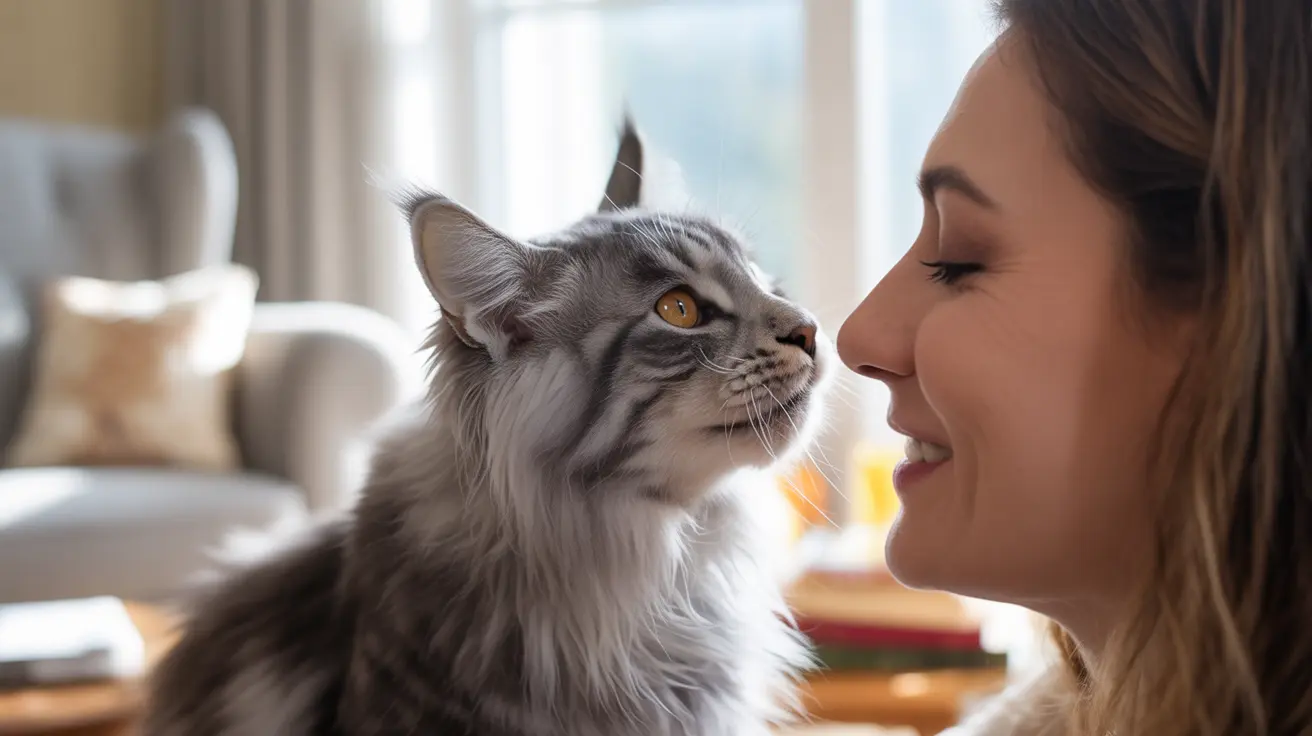The Remarkable Sense of Smell in Cats
Cats possess an extraordinary sense of smell, with approximately 200 million scent receptors - far more than humans. This remarkable olfactory capability enables them to detect subtle changes in their environment, including potential alterations in human body chemistry. Recent observations suggest that this heightened sense might allow cats to detect conditions like diabetes in their owners.
While scientific research remains limited, numerous anecdotal reports indicate that cats may be capable of sensing dangerous blood sugar fluctuations in their human companions. This ability appears to stem from their acute sense of smell combined with their capacity to observe subtle behavioral changes.
How Cats Might Detect Diabetes
When a person experiences significant blood sugar changes, their body produces specific chemical compounds that create distinct odors. During hypoglycemic episodes or diabetic ketoacidosis, the body releases volatile organic compounds, including acetone, which can be detected in breath, sweat, and urine.
Cats' superior olfactory abilities, enhanced by their vomeronasal organ (also known as Jacobson's organ), may enable them to perceive these chemical changes before they become apparent to humans. This specialized organ allows cats to detect pheromones and other subtle chemical signals that might indicate changes in their owner's health status.
Observed Behaviors in Cats Detecting Blood Sugar Changes
Pet owners have reported various ways their cats alert them to dangerous blood sugar levels:
- Persistent meowing or vocal behaviors
- Pawing at their owner, especially during sleep
- Following their owner more closely than usual
- Showing signs of distress or anxiety
- Attempting to wake their owner during hypoglycemic episodes
The Science Behind Feline Detection
While cats' ability to detect diabetes hasn't been extensively studied in controlled scientific settings, their biological capabilities make it plausible. Unlike humans, cats have evolved to detect minute changes in their environment, including subtle alterations in body chemistry that might signal medical conditions.
However, it's important to note that cats' responses may also be based on their observation of physical symptoms associated with blood sugar changes, such as sweating, trembling, or unusual behavior patterns in their owners.
The Role of Training and Natural Instinct
Unlike dogs, which can be formally trained as diabetes alert animals, cats typically rely on their natural instincts and strong bonds with their owners. This makes their detection abilities more variable and less predictable, though potentially no less valuable when present.
The combination of their keen sense of smell and close observation of their owners' routines may enable some cats to naturally develop this protective behavior without formal training.
Limitations and Medical Advice
While the possibility of cats detecting diabetes is intriguing, medical professionals emphasize that pet owners should not rely solely on their cats for blood sugar monitoring. Proper medical devices, regular testing, and professional healthcare guidance remain essential for managing diabetes effectively.
Consider any unusual behavior from your cat as a potential additional warning sign, but always maintain your prescribed diabetes management routine.
Frequently Asked Questions
Can cats really smell when their owner's blood sugar is low or high?
While there's limited scientific evidence, many cats appear to detect blood sugar changes through their acute sense of smell and observation of behavioral changes in their owners. However, this ability varies among individual cats.
How do cats detect changes in their owner's blood sugar if they can't taste sugar?
Cats use their powerful sense of smell, not taste, to detect chemical changes in their owner's body. They can smell ketones and other compounds released during blood sugar fluctuations.
Are there scientific studies proving cats can alert to diabetic emergencies?
Currently, most evidence is anecdotal. While there are numerous reported cases, formal scientific studies specifically focused on cats' ability to detect diabetes are limited.
What behaviors do cats show when they sense a diabetic episode in their owner?
Cats may become more vocal, persistently attempt to wake their owner, show unusual attention-seeking behavior, or display signs of distress when sensing blood sugar changes.
Should diabetic pet owners rely on their cats for early warning of blood sugar problems?
No, while cats may provide additional warning signs, diabetic individuals should always rely on proper medical monitoring devices and follow their healthcare provider's guidance for managing their condition.






